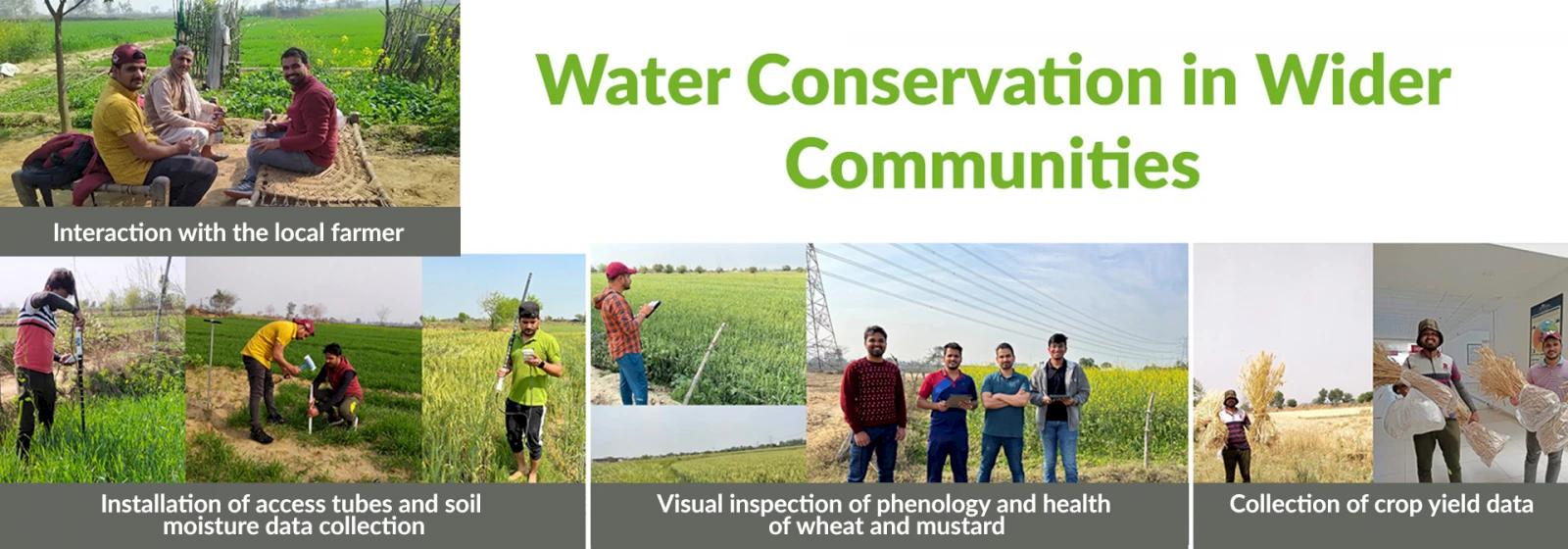
Water Conservation in Wider Communities
In the modern-day environmental context, which is being affected by climate change, monitoring crop conditions, predicting yields, and managing efficient irrigation practices are essential to address food and water security challenges. For this purpose, the water resources research group at the Water Management Field Laboratory is actively involved in monitoring a farmer’s field in the vicinity of Shiv Nadar Institution of Eminence, Delhi-NCR, by collecting soil moisture, canopy temperature, leaf area index (LAI), and spectral reflectance data using different instruments and sensors available with the group. The instruments used for the collection of these data are theta probe (ML3), profile probe (PR2/6), infrared thermometer (IRT), LAI meter, and spectroradiometer. In addition, biomass, grain yield, irrigation application, and soil properties data are being observed. Also, the group is dedicated to interacting with farmers to get details about the impact of climate change on crop productivity. Apart from these data, remote sensing data from satellites (Sentinel-1, Sentinel-2, Landsat-8, and Landsat-9) is used in monitoring the health and productivity of the crops in the farmers’ fields.
The aim is to model the impact of extreme weather conditions on biomass and crop yield through physical and machine learning-based models. Further, the group also aims to suggest various water application methods and precautions to enhance crop yield and water use efficiency in the farmers’ fields. Recently, group members published one article explaining the use of Sentinel-2 satellite data in monitoring wheat crops in the farmers’ fields. Further, the group members have submitted articles on water use efficiency and crop yield modeling of the wheat crop.